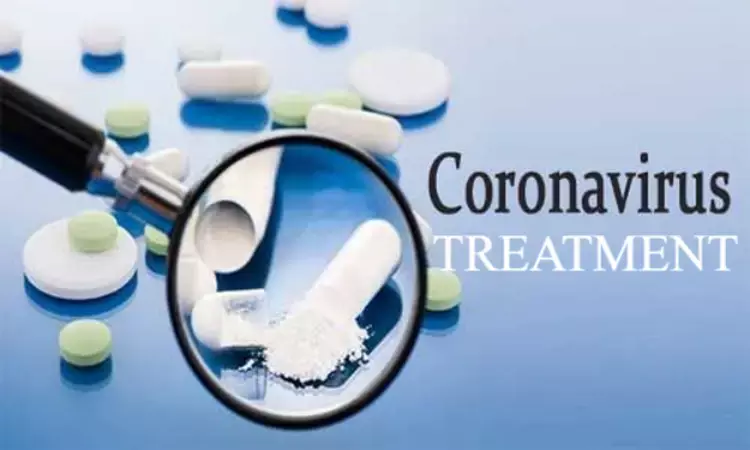- Home
- Medical news & Guidelines
- Anesthesiology
- Cardiology and CTVS
- Critical Care
- Dentistry
- Dermatology
- Diabetes and Endocrinology
- ENT
- Gastroenterology
- Medicine
- Nephrology
- Neurology
- Obstretics-Gynaecology
- Oncology
- Ophthalmology
- Orthopaedics
- Pediatrics-Neonatology
- Psychiatry
- Pulmonology
- Radiology
- Surgery
- Urology
- Laboratory Medicine
- Diet
- Nursing
- Paramedical
- Physiotherapy
- Health news
- Fact Check
- Bone Health Fact Check
- Brain Health Fact Check
- Cancer Related Fact Check
- Child Care Fact Check
- Dental and oral health fact check
- Diabetes and metabolic health fact check
- Diet and Nutrition Fact Check
- Eye and ENT Care Fact Check
- Fitness fact check
- Gut health fact check
- Heart health fact check
- Kidney health fact check
- Medical education fact check
- Men's health fact check
- Respiratory fact check
- Skin and hair care fact check
- Vaccine and Immunization fact check
- Women's health fact check
- AYUSH
- State News
- Andaman and Nicobar Islands
- Andhra Pradesh
- Arunachal Pradesh
- Assam
- Bihar
- Chandigarh
- Chattisgarh
- Dadra and Nagar Haveli
- Daman and Diu
- Delhi
- Goa
- Gujarat
- Haryana
- Himachal Pradesh
- Jammu & Kashmir
- Jharkhand
- Karnataka
- Kerala
- Ladakh
- Lakshadweep
- Madhya Pradesh
- Maharashtra
- Manipur
- Meghalaya
- Mizoram
- Nagaland
- Odisha
- Puducherry
- Punjab
- Rajasthan
- Sikkim
- Tamil Nadu
- Telangana
- Tripura
- Uttar Pradesh
- Uttrakhand
- West Bengal
- Medical Education
- Industry
COVID-19 drug- Aprotinin may prevent replication of coronavirus

Researchers at Goethe University, University of Kent and the Hannover Medical School have found that the protease inhibitor aprotinin can inhibit virus replication by preventing SARS-CoV2 entry into host cells. In addition aprotinin appears to compensate for a SARS-CoV2-induced reduction of endogenous protease inhibitors in virus-infected cells.
Severeacute respiratory syndrome virus 2 (SARS-CoV-2) is the cause of the current coronavirus disease 19 (COVID-19) pandemic. Protease inhibitors are under consideration as virus entry inhibitors that prevent the cleavage of the coronavirus spike (S) protein by cellular proteases.
Influenza viruses require host cell proteases for cell entry in a similar way as coronaviruses. Hence, an aprotinin aerosol is already approved in Russia for the treatment of influenza.
In cell culture experiments with various cell types, the international scientific team led by Professor Jindrich Cinatl, Institute for Medical Virology at the University Hospital Frankfurt, Professor Martin Michaelis, and Dr Mark Wass (both University of Kent) demonstrated that the protease inhibitor aprotinin can inhibit virus replication by preventing SARS-CoV2 entry into host cells.
Professor Jindrich Cinatl said: "Our findings show that aprotinin is effective against SARS-CoV2 in concentrations that can be achieved in patients. In aprotinin we have a drug candidate for the treatment of COVID-19 that is already approved for other indications and could readily be tested in patients.
Therapeutic aprotinin concentrations inhibit SARS-CoV-2 replication as entry inhibitors and by compensating for downregulated cellular protease inhibitors during later replication cycles. Local treatment of the respiratory tract using an aprotinin aerosol, which is approved in Russia for the treatment of influenza [14], may be a particularly promising strategy to suppress virus replication and lung injury early and to prevent COVID-19 progression into a severe, systemic disease.
For further reference log on to:
Denisa Bojkova, Marco Bechtel, Katie-May McLaughlin, Jake E. McGreig, Kevin Klann, Carla Bellinghausen, Gernot Rohde, Danny Jonigk, Peter Braubach, Sandra Ciesek, Christian Münch, Mark N. Wass, Martin Michaelis, Jindrich Cinatl jr. Aprotinin inhibits SARS-CoV-2 replication. Cells 2020, https://www.mdpi.com/2073-4409/9/11/2377
Dr Kamal Kant Kohli-MBBS, DTCD- a chest specialist with more than 30 years of practice and a flair for writing clinical articles, Dr Kamal Kant Kohli joined Medical Dialogues as a Chief Editor of Medical News. Besides writing articles, as an editor, he proofreads and verifies all the medical content published on Medical Dialogues including those coming from journals, studies,medical conferences,guidelines etc. Email: drkohli@medicaldialogues.in. Contact no. 011-43720751


